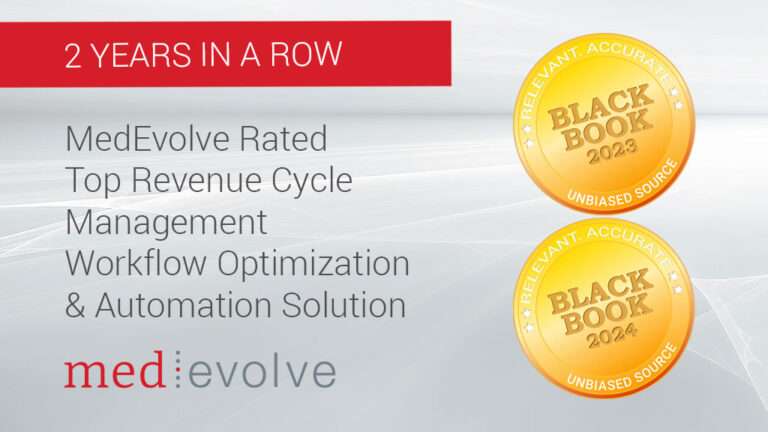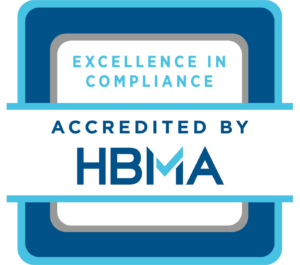
Personal improvements for expertly managing the front office, back office, or the entire revenue cycle management process
Whether you manage the front office, back office, or the entire revenue cycle management (RCM) process at your healthcare organization or medical billing company, you play a vital role by setting up the necessary infrastructure your teams need to solve issues on their own. This creates a reliable work environment where team members can continue to thrive. However, many managers get overwhelmed and find themselves doing their team’s work. This can lead to burnout and an unhealthy work environment. Here are some ways you can avoid this scenario:
- Elevate to a leadership role instead of a micromanager
Effective revenue cycle leaders trust their team members to use their knowledge, expertise, and resources to solve problems independently. They provide guidance and support when necessary, but don’t micromanage. By empowering team members to solve problems on their own, and consistently reinforcing that responsibility, RCM leaders can create a culture of innovation and continuous improvement. Additionally, this approach helps to build a more self-sufficient team, freeing up the leader’s time to focus on broader, strategic initiatives.
Remember, it’s not your job to do everything – it’s your job to see that it all gets done. This is how you drive value for your organization.
Branden Barkema, Senior Vice President & Chief Revenue Cycle Officer at MedEvolve
- Focus on the true point of the work and avoid “firefighting mode”
It is true that a core responsibility of any leader is to solve problems, but effective revenue cycle leaders prevent issues before they arise instead of constantly reacting to problems and “putting out fires”. They understand that providing their team with the best infrastructure possible is essential to achieving success, which means ensuring their team has the tools, resources, and training needed to perform their jobs effectively. They establish strong processes that are well understood by their team because they communicate expectations clearly and consistently, and measure performance over time. This helps to ensure consistent performance across all the meaningful “measurables,” such as high zero touch rate, low work effort rate, high net collection rates, etc. Not surprisingly, this also helps leaders and their teams avoid burnout.
- Thrive on building effective and efficient processes
Effective revenue cycle leaders recognize the importance of establishing benchmarks, tracking performance metrics, and documenting processes and procedures. They understand that without clear standards, it can be difficult to identify areas for improvement or measure progress toward goals. When managers successfully document, review and revise standards, they can easily identify inefficiencies in the revenue cycle process in order to develop effective solutions. They also recognize the importance of using objective data to measure performance and make data-driven decisions, rather than relying on subjective opinions or assumptions. Healthcare revenue cycle is one massive process – effective managers must continuously seek to understand how all the elements interact with, and affect, one another.
- Fully embrace change management
The job of management always involves defining what changes need to be made and seeing that those changes take place. Effective revenue cycle managers understand the importance of change management in achieving their goals: to reduce variability, costs, time required, and turnover, for examples. Once each goal is defined in terms of what changes needs to be made (both large and small), constant improvement can then become the routine. Each innovation allows for learning which informs ongoing operations. This way the revenue cycle becomes a perpetual motion machine.
Change never occurs as some sort of happening; it is part of everyday life. Effective managers use their positive influence and leadership skills to implement new ideas, technology and process improvements and encourage and support their team to fully embrace them. Moreover, they ensure that the team understands the use of technology as an effective tool rather than a burden. This is essential as technology is constantly evolving, and revenue cycle managers must understand the latest trends to improve their operations. By effectively managing change, revenue cycle leaders can ultimately enhance the financial performance of their organization.

How to be a champion of positive change in your revenue cycle management position
Implementing new technology into your revenue cycle can be a daunting task especially in a middle management role. Here are some practical tips for promoting change in your healthcare organization.
- Expertly prioritize resources and tasks
Effective revenue cycle leaders understand that managing people, processes, and technology are all equally important components of a successful revenue cycle management strategy. They prioritize their team’s time, energy, and resources to achieve balance across the operation. There are hundreds, if not thousands, of things to prioritize in a week – effective managers closely align their team with most important work first. Those managers maximize the effectiveness of their team members by supporting them with good process and bringing in good technology to help them work efficiently. Each of these areas – people; process; technology – must receive an appropriate amount of attention for the revenue cycle machine to run well.
By achieving this balance, effective leaders can optimize revenue cycle performance by reducing process waste, enhance operational efficiency by making it easier to perform each task, and ultimately improve stakeholder satisfaction both internally and externally.









